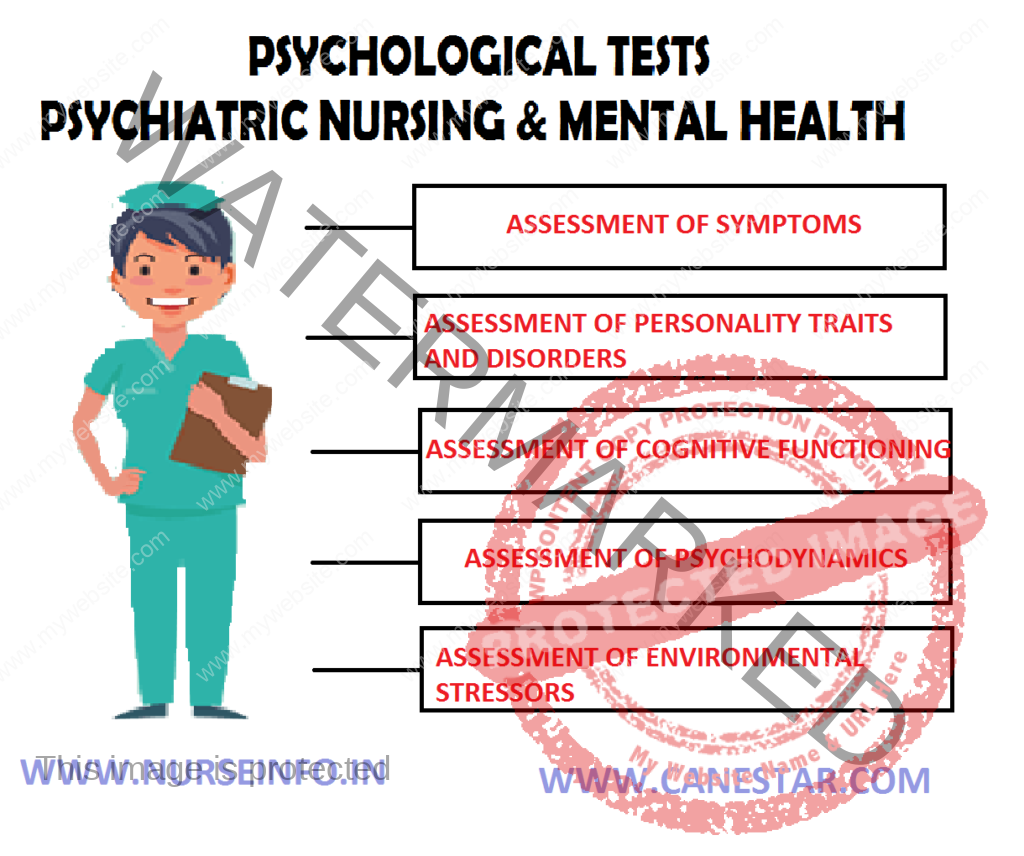PSYCHOLOGICAL TESTS – Instruments for Assessment of Symptoms
Psychological testing of patients is ideally conducted by a clinical psychologist who has been trained in the administration, scoring and interpretation of these procedures.
Instruments for Assessment of Symptoms
- Brief psychiatric rating scale
- Psychiatric symptom checklist
- Clinical global impression
- Anxiety self-rating scale
- Hamilton anxiety scale
- Beck’s anxiety scale
- Beck’s depression scale
- Hamilton depression scale
- Maniac state rating scale
- Yale brown obsessive compulsive scale
- Suicide intent scale
- Nurses observation scale for inpatient evaluation (NOSIE)
- Positive and negative symptom scale (PANSS) for schizophrenia
- Extrapyramidal symptom rating scale
- Global assessment of functioning (GAF) scale
- Insight and treatment attitude questionnaire (ITAQ)
- The CAGE questionnaire
- Mini mental status examination (MMSE)
- Child behavior checklist (CBCL)
Instruments for Assessment of Personality Traits and Disorders
- Minnesota multiphasic personality inventory
- Cattel’s 16 factor personality inventory
- Eysenck personality inventory
Instruments for Assessment of Cognitive Functioning
- Wechsler adult intelligence scale (WAIS)
- Wechsler intelligence scale for children
- Binetkamatch rest of intelligence
- Bhatia battery test of intelligence
- NIMHANS neuropsychological battery of lobe dysfunction.
Instruments for Assessment of Psychodynamics
- Rorschach inkblot test
- Thematic apperception test
Instruments for Assessment of Environmental Stressors
- Social adjustment scale
- Marital satisfaction inventory
Role of a Nurse in Psychological Assessment
Psychological tests have been designed to help clinicians. They help in:
- Measuring the extent of the patient’s problems
- Making an accurate diagnosis
- Tracking patient progress over time
- Documenting the efficacy of treatment
Nurses should become familiar with the many standardized psychological tests that are available to enhance each stage of the nursing process. These tests help in providing care and measurable indicators for treatment outcome. For example, if the nurse is caring for a patient with depression. It would be helpful to use one of the depression rating scales with the patient at the beginning of care/treatment to establish a baseline profile of the patient’s symptoms and help confirm the diagnosis. The nurse might open administer the same scale at various times during the course of treatment to measure the patient’s progress.
A nurse should have knowledge about all the psychological tests, which will enable her to clarify the patient’s and relative’s doubts regarding the psychological tests they have to undergo.
The nurse should reassure the patient about the safety of the tests and confidentiality of the observations of the psychologist. Psychological tests are another source of data for the nurse to use in planning care for the patient.


